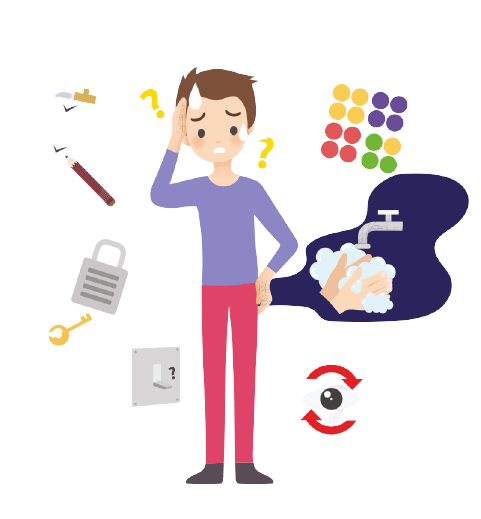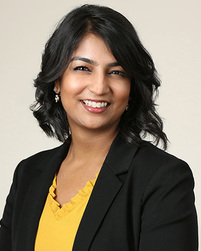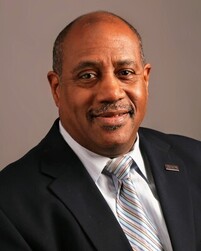Online OCD Therapy | Best Therapist For OCD Help
- Set up a free & confidential chat on your OCD issues
- Unlimited help through OCD self-care app
- Live Video or Chat sessions with top OCD therapists
Begin Therapy
Consult online with best Therapist
Get the best help for OCD
TherapyMantra is here to help you on your path to recovery from OCD. We match you with the best OCD therapists available 24/7 via video call or messages.
Match with OCD Therapists
We assign the best counselors experienced in OCD issues based on your needs.
Affordable and Effective
Our online sessions are 90% less expensive than in-person therapy, available 24/7.
Self-Care for OCD
We offer ongoing OCD support through self-care tools, OCD help videos, chat groups, meditations, breathing exercises, and other resources.

Wondering if it’s just a phase or something more? Take our Free online OCD test to find out?
How it works?
You are matched with an OCD counselor based on your needs and preferences. You get a secure “therapy room” where you can communicate with your counselor via chat or phone. You can write or talk about OCD & ask questions to deal with OCD.

Register for OCD Counseling
Simply complete a 5-minute online form to tell us about your OCD issues

Consult with your OCD Therapist
We connect you with OCD counselors who are available 24/7 based on your preferences and needs.

Connect to Our App
Apart from Video/chat sessions, our app offers self-care tools, videos, and meditations to help you deal with your OCD.
Best OCD Therapists
Positive conversations, exercises, and meditations are used by TherapyMantra psychologists to help you deal with OCD. Our OCD therapists outperform traditional counseling as you get matched from a pool of 500+ OCD counselors, who offer 24/7 unrestricted private chat.








What Is OCD?
OCD stands for obsessive-compulsive disorder, which is a mental illness that causes people to have intrusive thoughts and feelings. These thoughts and feelings cause them to do certain things over and over again, called compulsions. Some of these compulsions might include washing their hands constantly, checking the locks on their doors multiple times, or counting objects. OCD symptoms can vary from person to person, but they usually start happening in early adulthood.
OCD is a type of anxiety disorder. It can make it hard for people to go about their day-to-day lives. Some people with OCD also have other mental health conditions such as depression or bipolar disorder. This disorder can be challenging for not only the person with OCD but also their families.
Types of OCD
Most people with OCD have one of four kinds. One is when they are afraid of germs, another is when they are worried about something bad happening to themselves or others. The third kind is when someone does not want to do anything wrong. The last kind is just being scared by things that happen without knowing why.
- Locking your doors. Check your alarm system. Check your stove and light switches. If you are pregnant or have schizophrenia, then please go to the doctor.
- Contamination is when you are scared that something will touch you. You might feel like things are dirty.
- People like symmetry and order. They want to put things in a specific order.
- Intrusive thoughts are thoughts that are hard to get out of your mind. Some thoughts might be violent or upsetting.
Treatment For OCD
There are many treatment options for OCD. This treatment depends on person to person. Some people might need medication to help control their OCD. Others might need therapy.
Medications: Medications are one of the most common ways to treat OCD. There are many different kinds of medications that can be used to help get rid of the symptoms. However, these medications might not work for everyone so it is important to talk with your doctor before changing or starting any medication. Medication sometimes may have side effects.
Therapy for OCD:n For some people, talking with a therapist might be helpful when they are trying to fight their OCD symptoms. Talk therapy helps because it gives the person strategies that can help them get rid of the unwanted thoughts and behaviors related to their disorder. A trained professional can also teach you how not to think about your intrusive thought or do something else instead of what you normally would have done in response to that image or idea.
Lifestyle Changes: There are some things that you can do to help control your OCD symptoms. This includes getting enough sleep, eating healthy foods, and exercising regularly. All of these things will help your body stay strong and fight off any OCD symptoms that may try to come up. These methods can take a few months before they start to work.
How Does Therapy Help With OCD?
Therapy is a type of treatment that can help people with OCD. The therapist will work with the person to help get rid of the thoughts and feelings that are causing them problems. The therapist will also give them strategies to use when they have these thoughts or feelings. Therapies prove to be very beneficial for people who have OCD.
Therapists who give OCD therapy have special training in this type of treatment. They are aware that there are many different kinds of therapy, so they will work with the person to find the ones that best meet their needs.
Different Types of Therapy For OCD
There are different types of therapy that can be used to help people with OCD. The therapist will work with the person to find the ones that best meet their needs.
Cognitive Behavioral Therapy
This is one of the most common types of therapy for OCD. This type of therapy helps people change their thoughts and behaviors. The therapist will help the person learn how to deal with their intrusive thoughts and fears.
Exposure and Response Prevention
This type of therapy involves exposing a person to what they are afraid of and then not allowing them to do anything in response to that fear. This might mean gradually getting closer to something that scares them or touching something that they think is dirty. This therapy can be very helpful in getting rid of some of the symptoms related to OCD.
Mindfulness-Based Cognitive Therapy
This therapy is based on the idea that people with OCD have a lot of negative thoughts about themselves. The therapist will help the person learn how to pay attention to these thoughts and not get wrapped up in them. This type of therapy can be helpful for people who also have depression or anxiety.
Family Therapy
Family therapy is when the therapist works with the whole family to help them understand what OCD is and how it affects their loved one. The therapist will give the family strategies to use so they can help support their loved ones while they are going through treatment.
Group Therapy
Group therapy is when a group of people meets with a therapist to talk about their problems. Group therapy can help people feel less alone with their problems. It also helps because the other group members have similar problems to them, so they can understand what each person is going through.
Individual Therapy
Individual therapy is when a person meets with a therapist one-on-one. This type of therapy can be helpful because the therapist can focus on the individual and their specific needs.
How To Find an OCD Therapist?
TherapyMantra can help you find an OCD therapist near you. We have over 500+ therapists listed on our therapist directory. You can follow the following steps to find a good OCD therapist:
- First, ask your family doctor or anyone else you are seeing for a referral for an OCD therapist.
- The next thing you’ll want to do is ask your friends and loved ones for referrals.
- The next thing you’ll want to do is look online. There are many websites that help people find therapists in their area who can treat things like OCD
10,000+ Happy & Healed OCD Patients

“I was a 22 years old guy suffering from Major OCD. Therapy Mantra came into my life and helped me a lot in recovering from my issues. I took OCD counseling from Therapy Mantra which helped me overcome these issues and let me live a better life”
Kevin,
1 year on TherapyMantra
FAQs
Some common symptoms of OCD include constant thoughts that won’t go away, repeated actions over and over again, unable to do things because you feel like you have to do it a certain way, feeling uncomfortable when your body doesn’t feel right.
OCD can be hard to diagnosis at first since some people will start showing signs in their teens or early twenties. To diagnose someone with this disorder they need to see a mental health professional who knows how to look for these types of problems. They may ask them questions about what’s going on in their life and if they’ve had any similar problems before. If there was an event that triggered the problem then they will want to know about that too.
Yes, OCD is curable. With the help of a therapist who specializes in this type of disorder, people can learn how to manage their symptoms and get back to living their life.
There are many different types of treatment that can be used for OCD. Some common treatments include cognitive behavioral therapy, exposure and response prevention, mindfulness-based cognitive therapy, family therapy, group therapy, and individual therapy.
The most common treatment for this disorder is therapy, especially cognitive behavioral therapy or another type of exposure therapy. Therapists who give these types of therapies have special training in treating people with OCD because many mental health professionals don’t understand how serious the problem really is. They will work with the person to help get rid of their thoughts and feelings that cause problems so they can lead normal lives again without having constant anxiety over every little thing.
This will depend on the type of therapy that is given. Some therapies only require a few sessions, while others may require more visits. The therapist will be able to tell you how many times they think you will need to come.
The therapist and the person with OCD will work together to get rid of the thoughts and feelings that are causing them problems. The therapist will also give them strategies to use when they have these thoughts or feelings. Therapies prove to be very beneficial for people who have OCD.

Take a free emotional assessment today! Know how you feel.
Do you think you might be suffering from depression, anxiety, stress, or any other issue? Take our free emotional assessment today and find out! This quick and easy test will help you to understand more about how you’re feeling, and give you some insight into what might be going on.

